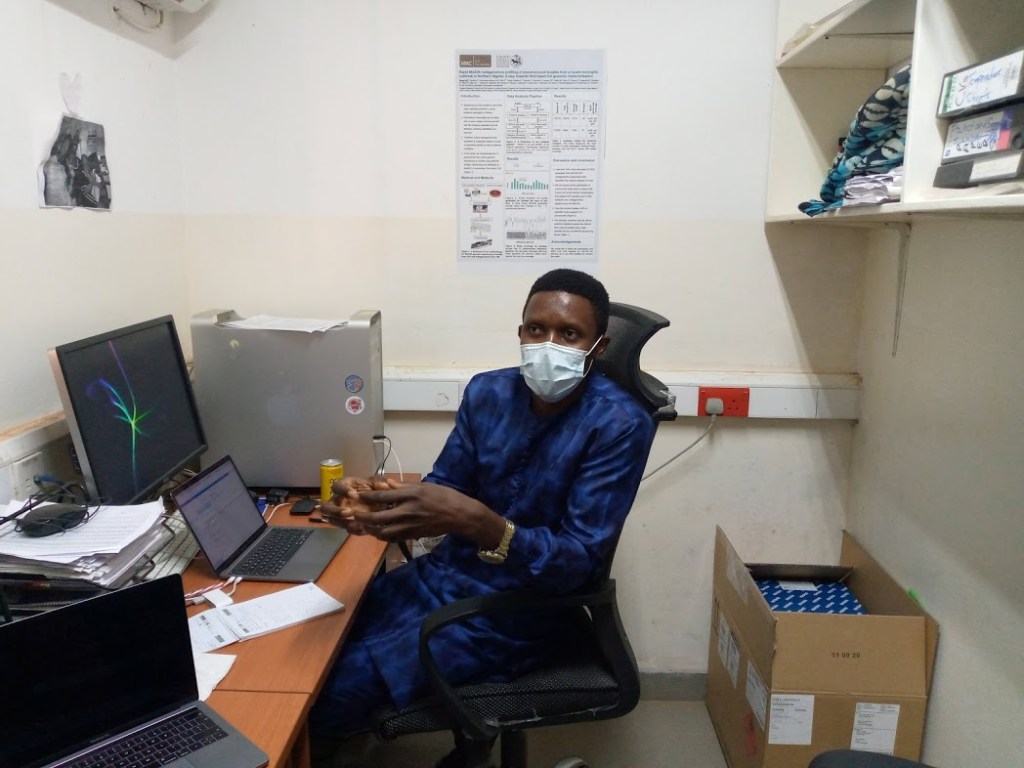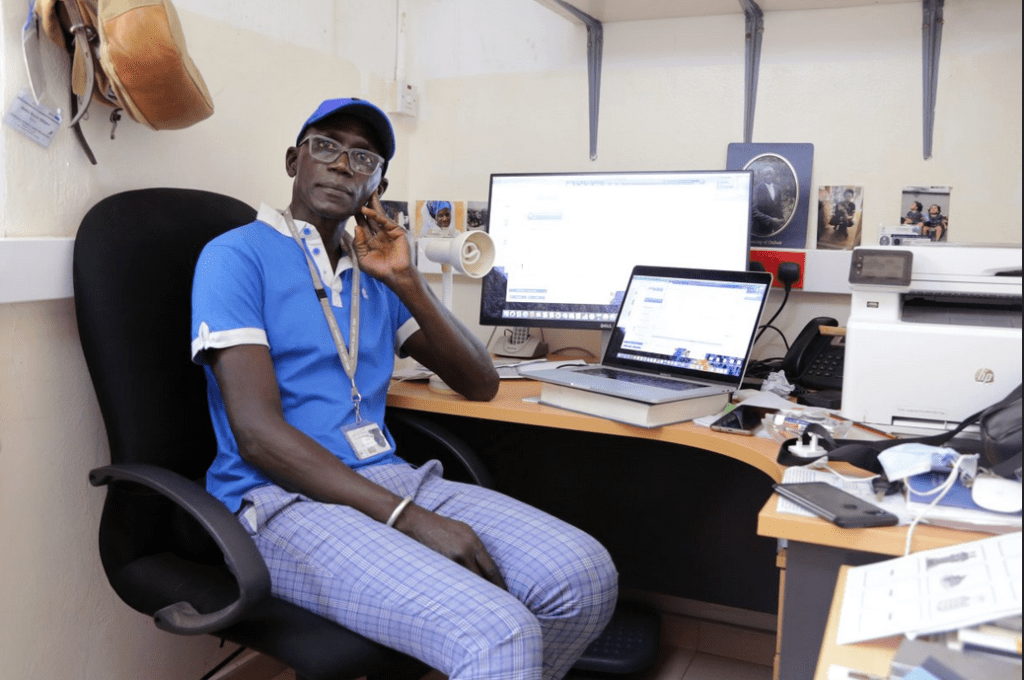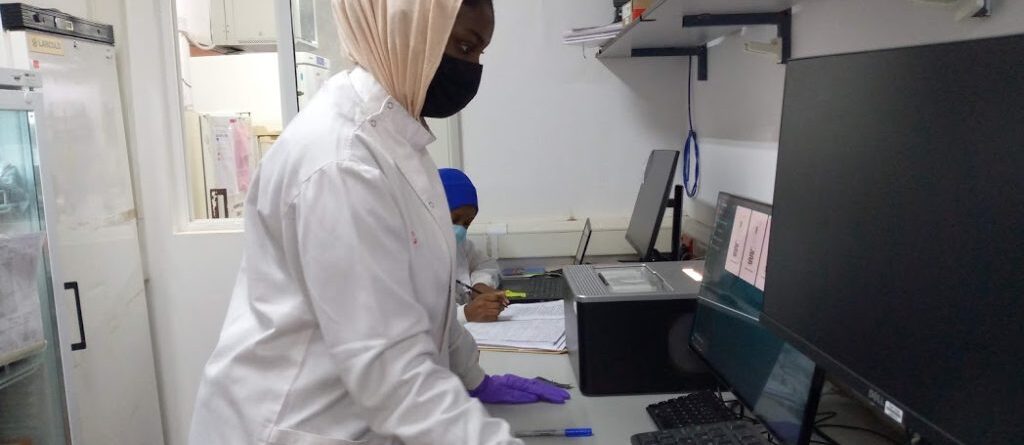‘Decoding’ COVID-19: Gambia’s success in tracking mutations of the virus
For rich countries, with availability of vaccines, the fight to contain COVID-19 may be in sight. Access to these vaccines for poorer countries is very limited as richer countries make mass purchase to protect their populations.
“COVAX can only reach 20% of the African population by 2021. More needs to be done for vaccine equity because no one is safe until everyone is safe,” said the World Health Organisation in a tweet on March 13.
Gambia receives 56, 000 doses, enough only to vaccinate 2.2 percent of its 2.3 million population. Without timely and adequate access to vaccines, Gambia is appreciating the need to invest in genome sequencing of Covid-19 to detect new variants if they occur as the virus continues to spread.
“The more people the virus infects, the more opportunity it has to mutate, and perhaps to a more aggressive strain,” said Abdul Karim Sesay, a Genomics Lab Manager at Medical Research Council at the London School of Hygiene and Tropical Medicine in the Gambia.
“There is a possibility that we could have a more aggressive strain in the country…” Sesay and his small team of 7 work in collaboration with Gambia’s National Public Health Laboratory with support from MRC UK.
The technique to track the transformation of a virus is call “genome sequencing”, an expensive but necessary venture for poorer countries. Limited access to vaccines amidst rising number of infections means African countries will need to invest in genome sequencing to understand what they are dealing with, said Sesay.
The Gambia has uploaded 430 sequenced genomes on the global database compiled by GISAID Initiative. By the beginning of March 2021, the small West African country had sequenced 1000 genomes or 20% of its positive samples, said Sesay.
The data from the GISAID Initiative in December has ranked the country 6th for percentage of positive Covid-19 samples sequenced, according to a Washington Post article.

Bakary Sanyang is a data analyst from the Medical Research Council. Their team has been tracking mutations of COVID-19 in the Gambia. The team also sequenced the genomes of COVID-19 for other countries in the region like Guinea Bissau, Burkina Faso, Mali and Senegal.
Understanding the enemy, knowing how to fight it
Mutations are a normal part of how viruses spread. Some strains are harmless and others raise alarm by increasing their transmissibility and lowering the effectiveness of vaccines.
“Virus tries to survive by changing; they are also looking for ways to survive in their situation. If there is something that is hampering their survival, they will try to adapt…,” said Bakary Sanyang, 29 years old, a Data Analyst at the MRC lab.
“The more we understand their (virus) behavior, the more we are chanced in finding an intervention or a strategy to contain it…”
In January, Gambia detected its first 2 cases of highly infectious Coronavirus strain from Britain. The UK variant is one of the three highly infectious COVID-19 strains in the world.
Though Gambia is doing well with little less than 5000 confirmed cases and 165 deaths since March 2020, the small country has a very weak healthcare infrastructure. This makes it crucial to detect infectious variants of COVID-19, if it does occur, early to properly contain it.
Sequencing the COVID-19 positive samples is crucial in informing treatment and quarantine protocols in the country, said Dr Mustapha Bittaye, the small country’s Director of Health Services. Tracking the virus strains also helps to modify vaccines and helps governments impose lockdowns to specific regions or target their interventions to the area where the strains is detected.
“… If you have a very transmissible one, the management is different… If you are infected with a UK strain, if you do not have 2 negative tests after treatment, we don’t release you,” said Dr Bittaye.
Equally important, according to Dr Bittaye, is determining what vaccines to buy. “… If the vaccine we are using is not very effective against a particular strain, we will have a big decision to make…,” he said.
Gambia’s COVID-19 treatment response is led by Dr Abubacarr Jagne, a physician and kidney specialist. Mutations of the virus, especially if it is more infectious, does have clinical and epidemiological implications.
When the country detected the UK variant of SARS-CoV-2, Jagne’s team had to quickly quarantine the family, test them to see if they are all infected.
“Genome sequencing is very important because very early enough we knew what variants we have… and we do that better than most countries,” said Jagne.

Exporting the sequencing successes
Though Gambia has made huge gains in sequencing its positive samples of COVID-19, the story is not the same elsewhere in the region. In September last year, the African Center for Disease Control and World Health Organisation (WHO) urged African countries to strengthen their genome sequencing capacity.
The two organisations launched 12 labs to improve the capacity of countries to do genome sequencing of COVID-19. In February, up to about 7891 sequences were produced in the region, said the WHO.
“The emergence of new, more contagious SARS-CoV-2 variants is reinforcing the need to step up genomic surveillance,” said the WHO.
But even if Gambia continues to do well, without other countries in the region with which it shares border also doing more sequencing, its success may be meaningless.
“We need sequencing in all African countries to know what is going on around other countries in Africa…,” said Sesay.
“We can control what is happening at Gambia’s airport but we do not control what happen at our porous borders…”
In early March, Sesay and Bakary Sanyang, a data analyst at the MRC lab, were in Guinea Bissau to help the West African country improve their genome sequencing capacity. They also helped to sequence positive samples from the country during their stay.
They have also sequenced samples from Senegal, Burkina Faso and Mali. This month members of Sesay’s team, Mariama Kujabi, spent a week in Burkina Faso while Jarra Manneh also spent a week in Senegal. Part of their efforts was to also support the labs in these countries to enhance their capacity in genome sequencing.
Meanwhile, when Malagen met Sainabou Laye Ndure in their lab at the MRC complex in Fajara, she was sequencing COVID-19 positive samples fro Burkina Faso. Sanyang was sequencing samples from Guinea Bissau.
“We did it (genome sequencing) and send it to different countries if that is where they need it. We used it here if that is where we need it,” Ndure told Malagen

